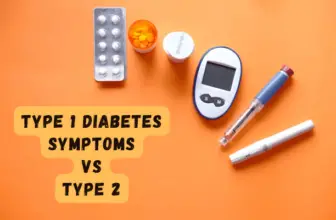Diabetes During Pregnancy: All That You Need To Know

Preexisting and gestational diabetes are two of the growing concerns and pregnancy fears among mothers-to-be. A pregnant woman with preexisting diabetes has the chance to monitor blood glucose levels and take necessary precautionary steps to ensure the baby’s safety.
However, the situation is different for a woman who suddenly starts developing diabetes during the second half period of pregnancy. This sudden condition of diabetes that occurs during pregnancy is known as gestational diabetes, and it can happen just about at any stage of pregnancy.
Sugar diabetes such as Type I and Type 2 is common during pregnancy. On the other hand, only 10 to 20% of women develop the condition of gestational diabetes. Regardless of the type of it, poor control of blood sugar leads to severe complications during pregnancy.
In the effort of getting more precise insights on what causes diabetes during pregnancy, you’ll come across terms such as- “Gestational Diabetes” and “Diabetes Mellitus.” You may wonder if both the words are the same or different, and the symptoms you should keep in check.
Can you still have a healthy baby? Better if you could know proven ways to prevent gestational diabetes from occurring.
Tell you what, in this article, you’ll know what causes diabetes mellitus and gestational diabetes during pregnancy. Additionally, we have chalked down the top five sure diabetes symptoms to check out for during pregnancy and clinical insights on how to deal with it. First, you need to know the three common types of diabetes mellitus during pregnancy.
What is Diabetes Mellitus?
The word “Mellitus” is a Latin word meaning sweet. Note that the term “diabetes mellitus” refers to the particular symptom of diabetes.
Sometimes called “sugar diabetes,” diabetes mellitus is the usual diabetes condition when glucose levels are abnormally high. There are three types of diabetes mellitus, which are as follow–
- Type I Diabetes
- Type 2 Diabetes
- Gestational Diabetes
Sugar diabetes, such as type I and type 2, can occur among just about anyone – both men and women. It is gestational diabetes that occurs only among pregnant women and hence is the most concerning issue regarding the mother’s and baby’s safety.
Type I diabetes in Pregnant women:
During the placental formation phase, sometimes the pregnant women’s body cannot make the extra insulin required for maintaining a healthy blood glucose level. As such, the lack of insulin production causes type 1 diabetes during pregnancy.
Type 2 Diabetes in Pregnancy:
Type 2 diabetes is a common form of diabetes during childbirth. The body of the mother-to-be is unable to make proper utilization of insulin. This results in forming insulin resistance, leading to excess blood glucose level, and hence type 2 diabetes occurs during pregnancy.
Gestational Diabetes in Pregnancy:
The term “Gestation” refers to the time during pregnancy and hence the name Gestational Diabetes only occurs during pregnancy. In broader clinical terms, Gestational diabetes is often referred to as Gestational diabetes mellitus or GDM. Gestational diabetes is the most concerning issue among pregnant women.
Why do women have diabetes during pregnancy?
A woman’s body changes during different phases of pregnancy, and so does the hormone levels. The human placental lactogen is one of the essential pregnancy hormones, and it starts to form in and around ten weeks of pregnancy.
The pregnancy hormone produced by the placenta changes how a woman’s body responds to glucose level and alters the standard way of insulin production. This is the main reason why women usually have sugar diabetes during pregnancy.
5 Sure Symptoms of Diabetes during Pregnancy
While it’s a fact that gestational diabetes hardly causes any symptoms, pregnant women must stay alert on particular symptoms of high blood glucose levels. Here are the five symptoms to take into your account during pregnancy.
1. Frequent Urination
Going to the toilet a lot during pregnancy is a common phenomenon. While frequent urination is the first sign of pregnancy, don’t underestimate the creeping signs and symptoms of type 1 diabetes.
You may get an urge to urinate during your pregnancy but urinate very little – that’s the sign of pregnancy. However, if you urinate a lot, it’s time to check your blood glucose level indeed.
2. Excessive Thirst

Feeling thirsty is another common symptom in pregnancy. Very occasionally, insatiable thirst along with dry mouth is also a sign of gestational diabetes, which you should never ignore.
3. Extreme fatigue and nausea
Morning sickness associated with extreme fatigue and nausea begins between the early 4th and 5th week of pregnancy. However, if you feel severe fatigue all day along with increased appetite, weight loss, and vomiting, it may be telltale signs of diabetes that you must be aware of.
4. Sugar cravings
Frequent sugar cravings are itself a symptom of gestational diabetes. The intense desire to eat sweets and desserts is a severe symptom you should never ignore.
5. Sugar in urine

Sugar in urine is a warning sign of gestational diabetes. This symptom is revealed by the glucose testing done by the doctor. The initial glucose tolerance test (OGTT) only shows the symptoms of type 2 diabetes during pregnancy. But OGTT hardly indicates the symptoms of gestational diabetes. Hence, doctors perform a modified version of the test, including both the OGTT and glucose screening test.
Now that you know all the telltale signs and symptoms of diabetes during pregnancy, it’s time to take preventive and actionable steps in managing it.
10 Tips for managing diabetes during pregnancy
How can you have a healthy pregnancy with diabetes? Check out these tips and meaningful ways to manage diabetes during pregnancy.
1. Maintain a low-carbohydrates strategy
Carbohydrates affect the sugar level in the blood and hence bad for pregnant women with diabetics. If you already have diabetes, it is vital to know particular carbs that are beneficial and the ones that are harmful during pregnancy. Even if you eat healthy carbs such as lentils, apples, or yogurt, it is wise to keep track of your carbohydrates intakes and follow a good strategy.
2. Follow a healthy eating plan
Several diabetes meal plans are available online, and at times it can be difficult for a pregnant woman to choose the right one. No wonder the 4-step or 6-step diabetes diet for pregnant women available online provides some excellent ideas. But, pregnant women must consult with a doctor for developing the appropriate healthy eating plan.
Best recommended diet plan on the online you can find in the Nutrisystem.com
What is the Nutrisystem Diet? Learn More Here.
It is never wise to follow just about any diet plan because limiting certain nutrition varieties and food items can be dangerous for pregnant women rather than any benefit.
3. Don’t diet; instead, eat healthily
Certain foods, such as raw fishes, alcohol, and beverages, can compromise a baby’s health during pregnancy. Hence, stay away from food items that hamper the baby’s growth and stick to a healthy and balanced diet that provides your baby with sufficient calories.
4. Strictly limit your sugar cravings
It is only normal for pregnant women to get a sudden surge of specific food cravings. Research indicates gestational diabetes increases sugar cravings at a high rate during pregnancy. Limit all varieties of sweets and desserts to keep your blood glucose level under control.
5. Get Eight hours of sleep

Pregnant women experience long, sleepless nights. Finding a comfortable and the right sleeping position is challenging indeed. But do you know insufficient sleep is one of the major contributing factors leading to diabetes? No matter how hard it is for you to imagine the connections between sleep deprivation and diabetes; it’s an evidence-based fact indeed.
6. It’s not always about sugar
So, you have managed to maintain the average sugar level until the second half period of your pregnancy. Can you still get diabetes? The answer to this question is yes.
You can still get gestational diabetes even if you eat no sugar at all. In fact, gestational diabetes occurs due to pregnancy hormones. So, the sugar level is definitely not a reason to get gestational diabetes during pregnancy.
7. Exercise lowers the risk of gestational diabetes

Try performing 30-minutes moderate exercise each day and see potential benefits in tackling diabetes symptoms.
Due to uncertainties and lack of knowledge regarding exercise benefits, pregnant women tend to avoid getting adequate exercise. But, exercise is a must to stay fit and active during the critical phase of gestational diabetes.
8. Check Your Blood Sugar level regularly

A balanced diet and active lifestyle is the key to lower the risk of diabetes during your pregnancy. But, how do you know your diet is under control?
Checking your sugar levels help in managing diabetes properly. A blood glucose meter provides you the chance to monitor your blood glucose levels at home.
Gestational diabetes tends to get back and take the form of type 2 diabetes after delivery. As such, doctors usually suggest rechecking blood sugar levels about 6 weeks after delivery.
9. Check your feet for cuts and swellings
Research indicates preexisting or types 1 diabetes during pregnancy leads to the risk of developing diabetic foot. Get your feet checked by your doctor from time to time or check it yourself for cuts, blisters, and swelling.
10. Take Medication
If everything fails in keeping your blood sugar level under control, its time to take medication. Insulin is the gold standard and safest of all during pregnancy. When lifestyle measures do not maintain the insulin standard, use doctor-prescribed diabetic pills.
Digital Program That Offers A Solution To Type 2 Diabetes. The Premise Of The Program Is That Toxins Cause Type 2 Diabetes, Combat These Toxins And You Can Reverse And Repair Your Body. You Don’t Take Any Magic Pills; You Just Consume Certain Ingredients And Eliminate Your Diabetes.
Bottom Line
Gestational diabetes leads to pregnancy complications. It also leads to the risk of developing type 2 diabetes in the next 4-5 years. That means prevention is always better than cure. All pregnant women must realize what increases the chance of developing gestational diabetes and take actionable steps for managing the condition during pregnancy.
A couple of years ago, it wasn’t advisable to have a baby with diabetes. If you are healthy and your diabetes is well-controlled, there’s an excellent chance to have a sound and healthy pregnancy. The number of women with diabetes will increase from 453 million in 2019 to 700 million by 2045 globally! That means more women with diabetes will have babes.
So, there’s nothing to be afraid of if you have diabetes during pregnancy. Only remember to keep your blood sugar levels under control and stay stress-free that’s all you need for a healthy baby.
Frequently Asked Questions
-
What are the problems of diabetes during pregnancy?
Answer: Uncontrolled diabetes during pregnancy leads to severe complications. Some of the risks are serious birth defects, extra-large babies, miscarriages, or low blood glucose levels right after delivery.
-
What increases the chance of developing gestational diabetes?
Answer: Overweight, having prediabetes, or a family history of type 2 diabetes increases the chance of developing gestational diabetes during pregnancy.
-
How do doctors diagnose gestational diabetes?
Answer: The standard oral glucose tolerance test (OGTT) only reveals Type 1 or Type 2 diabetes during pregnancy, and this is done in between 24 and 28 weeks during pregnancy.
The diagnostic method for gestational diabetes is screening the blood test regularly. Doctors perform a modified version of OGTT and glucose screening tests to diagnose gestational diabetes in pregnant women.
-
Does every pregnant woman get tested for gestational diabetes?
Answer: No, not all pregnant women are tested for gestational diabetes. If you or your doctor sees any risk factors, then only you get the gestational test diabetes.
-
Can I still have gestational diabetes after delivery?
Answer: Usually, gestational diabetes resolves after the delivery, but there is a chance of developing type 2 diabetes in the future if not taken care of.
Related Reading:






